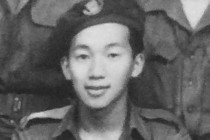
Henry Fung of Vancouver was only 19 years old when he became the first, and the youngest, of several Chinese-Canadians to be parachuted behind Japanese lines in Malay during the waning months of the Second World War.
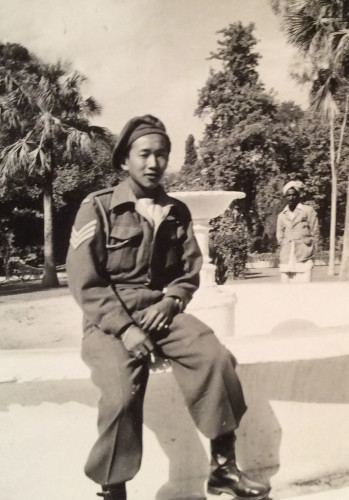
Henry Fung takes a cigarette break in India, where he did some of his commando training.
As a member of Britain’s secretive Special Operations Executive (SOE), Force 136, Fung was put through punishing, commando-style and jungle survival training. He eventually specialized as an interpreter. That was to be his role the day that Fung and a small team of men was selected to be dropped into Japanese-occupied Malay (now known as Malaysia).
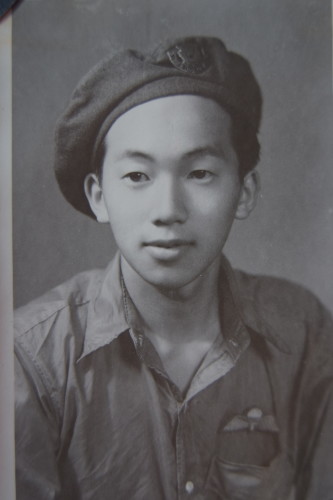
Henry Fung – Force 136: was the first and youngest Chinese Canadian to be parachuted behind Japanese lines.
On June 22, 1945, Fung found himself floating to earth near Kuala Lumpur, today the capital city of Malaysia. In his pocket were four gold coins stamped 1918 with King George on the front, and St. George the dragon slayer on the back. The coins were given to him in case of an emergency. Knowing Fung would have no outside support, the coins could be used for bribes to help him hide or escape.
Once Fung’s team got their bearings, they set off to blow up a railroad bridge and railroad tracks, and bring down telephone lines. They also made contact with the guerrillas of the Malayan Peoples’ Anti-Japanese Army (MPAJA).
Fung discovered many of the guerrillas were very young men just like him, and he developed a sense of camaraderie with them. He proudly sported their cap badge on his beret.
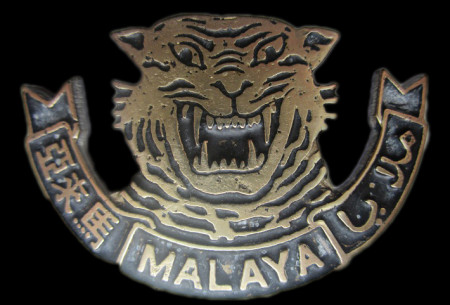
Badge: Malay Anti-Japanese Peoples Army
When the Japanese formally surrendered in mid-August, 1945, it took some time before word reached Japanese units posted in remote locations. This often put Force 136 men into a difficult position where they had to persuade or force the surrender of army units they met in the field.
Fung’s team took over control of the Japanese garrison in the city of Kajang. Not surprisingly, after the surrender, chaos ensued and retribution was frequently meted out by residents on anyone who was Japanese or who was viewed to have been a Japanese collaborator during the occupation. Force 136 members had struggle to maintain order until British troops arrived.
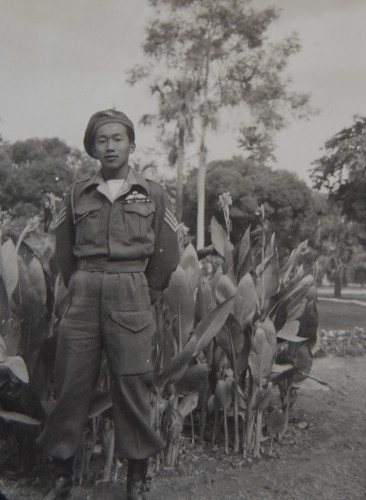
Henry Fung Force 136
Although he escaped any injuries, Fung was not left untouched by his journey in the jungle. He returned to Britain suffering from jaundice and malaria. By 1946, he was back home in Canada sporting a small dragon tattoo on his arm.
As for those four gold coins Fung had in his pocket when he parachuted into Malay? He never needed them, so he brought them back to Canada. He gave one to a friend. And gifted the other three to his daughters. They, in turn, turned the coins into medallions that they wore around their necks.
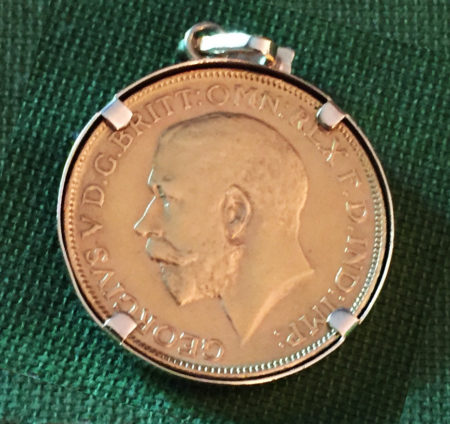
One of four gold coins that Henry Fung carried with him into the Malaysia jungle.
Unfortunately, Henry Fung died of a massive heart attack on June 18, 1982 — a mere four days before the anniversary of his first parachute jump. He was only 56 years old.